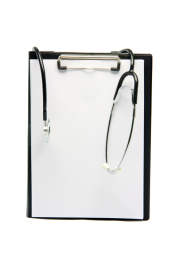Dementia vs Pseudodementia
Published by Steve Hedberg on April 23, 2009 Under dementia
 One of the first tasks for a doctor when dealing with dementia like symptoms is to differentiate between real dementia and pseudodementia.
One of the first tasks for a doctor when dealing with dementia like symptoms is to differentiate between real dementia and pseudodementia.
Pseudodementias are medical condtions that often have similar symptoms to dementia, but are actually caused by other health problems.
Common Types of Pseudodementia
- Depression
- Reactions to Prescription Medications
- Chemical Imbalances, Diet, and Other Medical Conditions
- Diagnosing and Treating Pseudodementia
Depression
One of the most common types of pseudodementia is depression, which can cause many of the classic symptoms of dementia, including confusion, forgetfulness, and unresponsiveness.
Sometimes a doctor can review a patient’s past history to help determine if they are suffering from dementia or depression. This includes past bouts with depression, insomnia, fatigue, and loss of appetite.
The loss of a loved one or spouse can also cause depression and is referred to as reactive depression. Sometimes reactive depression manifests itself in an individual carrying on conversations with the deceased or acting like they were still alive.
An individual who appears to be withdrawn or even absent minded, might also be depressed over external factors, such as the loss of income or loneliness.
Reactions to Prescription Medications
Reactions to drugs will also often cause symptoms that are similar to dementia.
Many seniors take a number of medicines, both those to treat conditions, like high blood pressure, but also sleeping pills and sedatives. These medicines often have a number of side effects, which are amplified by the elderlies decreased ability to metabolize the drugs. Often one of the first steps in diagnosing mental problems is to slowly wean the senior off of all non-essential medications.
Chemical Imbalances, Diet, and Other Medical Conditions
Chemical imbalances, which are often caused by poor diet and improper absorption of nutrients by the body, can also cause symptoms similar to that of dementia. These are more likely to occur in the elderly, who may also be less active and not have much appetite.
Dietary problems can sometimes lead to anemia, which is a blood disorder whose first symptoms are often irritability and depression. Hypoglycemia, which is a medical condition where there is an inadequate supply of sugar in the blood stream, can also cause depression.
Heart and Lung disorders will also often share symptoms similar to that of dementia.
Diagnosing and Treating Pseudodementia
Most types of pseudodementias are treatable and if diagnosed soon enough, will not cause major damage to the brain.
Often, many dietary problems, which are more common among seniors, can be discovered by preforming a blood test. Understanding the patients medical history is also important, because, for example, those with dementia will typically experience memory loss prior to becoming depressed, while the opposite is true with Pseudodementia.
Treating the Pseudodementia will typically remove the dementia like symptoms, so, as is the case with many types of diseases, diagnosing dementia often begins with eliminating the common types of Pseudodementia.
2 Comments |
14 Aug 2009 - 21:30
We thought my grandmother had alzheimers, because of her mood swings and depression, but it turned out to be psuedodementia and her mood greatly improved when we treated the depression. So, it really is an important step in diagnosing dementia.
14 Aug 2009 - 21:32
Eric, I am glad you were able to address the conditions that were causing your grandmother to have dementia like symptoms.